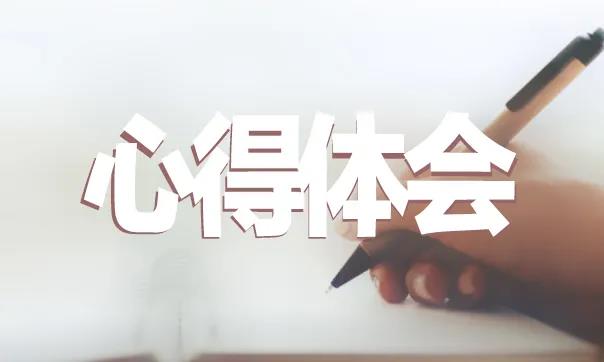[高一上学期英语知识点]高一上学期英语语法
时间:2018-07-06 17:20:55 来源:勤学考试网 本文已影响 人 
高一英语与初中衔接,那么高一上学期的英语知识点你都掌握了吗?接下来小编为你整理了高一上学期英语知识点,一起来看看吧。
高一上学期英语知识点:必背句型
1) It was the first time in a year and a half that I had seen the night face to face. (从句时态用完成时) 这是我一年半以来第一次目睹夜晚。
2) I wonder if it’s because I haven’t been able to be outdoors for so long that I’ve grown so crazy about everything to do with nature.(强调句) 我不知道这是不是因为我长久无法出门的缘故,我变得对一切与大自然有关的事物都无比狂热。
3) I stayed awake on purpose until half past eleven one evening in order to have a good look at the moon for once by myself. 有一天晚上,我熬到11点半故意不睡觉,为的是独自好好看看月亮一次。
4) Your friend, who doesn’t work hard, asks you to help him cheat in the end-of-term exam.(非限制性定语从句) 你的一个朋友叫你在期末考试中帮他作弊,这个朋友平常不认真学习。
5) If you have some trouble (in) getting along with your friends, you can write to the editor and ask for advice. 如果你在和朋友的相处上有问题,你可以写信给编辑向他征求建议。
6) Add up your score and see how many points you can get. 把你的得分加起来,看看得了多少。
7) What he did has added to our difficulties. 他的所作所为增加了我们的困难。
8) His income adds up to $1000 a month. 他每月的收入共计1000美元。
9) It's no pleasure looking through these any longer because nature is one thing that really must be experienced. 观看这些已不再是乐趣,因为大自然是你必须体验的。
10) Why is she so concerned about his attitude to her work? 她为什么那么关注他对她的工作的看法?
11) The police asked him to set down what he had seen in a report. 警察让他在报告中写下他所看见的事情。
12) As I was about to go out and search for him, he happened to come in. 正当我打算出去找他时,他恰巧进来。
13) Mr. Jones lives alone and often feels lonely. 琼斯先生单独一人生活,常常感到孤独。
14) We tried to calm him down, but he kept crying. 我们试图让他平静下来,但他仍不停地哭着。
15) Does he dare (to) go out at night in such stormy weather? 他敢在这样一个暴风雨夜外出吗?
高一上学期英语知识点:简单句的五种基本结构
S+V是主谓
S+V+DO 是主谓加双宾
S+V+P是主谓宾
S(主语)+V(谓语)+ I(间接宾语)+D(直接宾语)
S(主语)+V(动词)+O (宾语)+Complement(补语)
1. Subject (主语) + Verb (谓语)
这种句型中的动词大多是不及物动词,这些动词常见的有:appear, apologize,arrive, come, die, disappear, exist, fall, happen, rise,等等。如:
The students work very hard.学生们学习很努力。
She apologized to me again. 她再次向我道歉。
The accident happened yesterday evening.事故是昨天晚上发生的。
2. Subject (主语) + Link. V(系动词) + Predicate(表语)
这种句型中的系动词一般可分为下列两类:
(1)表示状态的连系动词。这些词有:be, look, seem, appear, smell, taste, sound, keep, remain, 等等。如:
Several players lay flat on the playground.几个队员平躺在操场上。
We should remain modest and prudent any time.我们在任何时候都应该保持谦虚谨慎。
This kind of food tastes terrible.这种食物吃起来很糟糕。
The picture looks more beautiful at a certain distance.这幅画在一定的距离看更漂亮一些。
(2)表示转变或结果的系动词。这些词有:become, get, grow, turn, go, come, prove,等等。如:
Spring comes. It is getting warmer and warmer.春天到了,天气变得越来越暖和。
Don't have the food. It has gone bad.不要吃那种食物,已经变质了。
The facts prove true.事实证明是正确的。
3. Subject(主语) + Verb (谓语) + Object (宾语)
这种句型中的动词应为及物动词或者可以后接宾语的动词短语。同时,句子中有时含有与宾语有关的状语。作宾语的成分常是:名词、代词、动词不定式、动名词或从句。如:
You can put the books in your bag.你可以把书放在书包里。
Farmers in our area grow lots of vegetables.我们这里的农民种很多种蔬菜。
She lost the chance to make her appearance on the stage.她失去了在舞台上露面的机会。
I prefer to make web pages.我更喜欢做网页。
4. Subject(主语)+Verb(谓语)+ Indirect object(间接宾语)+Direct object (直接宾语)
这种句型中作间接宾语的常常指“人”,直接宾语常常指“物”。如:
Yesterday her father bought her a bicycle as a birthday present.昨天她父亲给她买了一辆自行车作为生日礼物。
The old man is telling the children stories in the Long March.老人正在给孩子们讲长征中的故事。
这种句型还可转换为其他两种句型:1)动词 + 宾语 + for sb.; 2)动词 + 宾语+to sb.。如:
Please show me your picture.
-Please show your picture to me.
请把你的画给我看一下。
I'll offer you a good chance as long as you don't lose heart.
—I'll offer a good chance for you as long as you don't lose heart.
只要你不失去信心,我会给你提供机会的。
5. Subject(主语)+Verb (动词)+Object (宾语)+Complement(补语)
这种句型中的宾语+ 补语可统称为“复合宾语”。担任补语的常常是名词、形容词、副词、介词短语、分词、动词不定式等。如:
Keep the children quiet, please. 请让孩子们安静下来。
He painted the wall white. 他把墙漆成白色。
We found him an honest person.我们发现他是一个诚实的人。
His mother told him not to play on the street.他母亲告诉他不要在街上玩。
注意:动词have, make, let, see, hear, notice, feel, observe, watch等后面所接的动词不定式作宾补时,不带to。如:
The boss made him do the work all day.老板让他整天做那项工作。
高一上学期英语知识点:英语句子成分分析
1、主语(subject): 句子说明的人或事物。
The sun rises in the east. (名词)
He likes dancing. (代词)
Twenty years is a short time in history. (数词)
Seeing is believing. (动名词)
To see is to believe. (不定式)
What he needs is a book. (主语从句)
It is very clear that the elephant is round and tall like a tree.
(It形式主语,主语从句是真正主语)
附带复习一下it 作形式主语的一些用法: 当主语部分太长时为了句子平衡采用it作形式主语。所谓形式是指句子的真正主语将在句子末段出现
1.it is+名词+从句 :It is a surprise that you give such an answer to this question.
2. it is +形容词+从句: It is certain that free medical care will be given to most people in our city.
3. It +动词+从句: It appeared that he had a taste for music.
4. It be +分词+从句:It is said that Li Tao has been to Europe.
2、谓语(predicate):说明主语的动作、状态和特征
We study English. He is asleep.
3、表语(predicative):系动词之后的成分,表示主语的性质、状态和特征。
He is a teacher. (名词)
Seventy-four! You don’t look it. (代词)
Five and five is ten. (数词)
He is asleep. (形容词)
His father is in. (副词)
The picture is on the wall. (介词短语)
My watch is gone / missing / lost. (形容词化的分词)
To wear a flower is to say “I’m poor, I can’t buy a ring. ” (不定式)
The question is whether they will come. (表语从句)
常见的系动词有: be, sound(听起来), look(看起来), fee l(摸起来),smell(闻起来),taste(尝、吃起来), remain(保持,仍是), feel(感觉) ….
It sounds a good idea.
The sound sounds strange.
Her voice sounds sweet.
Tom looks thin.
The food smells delicious.
The food tastes good.
The door remains open.
Now I feel tired.
4、宾语:
1)动作的承受者——动宾
I like China. (名词)
He hates you. (代词)
How many do you need? We need two. (数词)
We should help the old and the poor.
I enjoy working with you. (动名词)
I hope to see you again. (不定式)
Did you write down what he said? (宾语从句)
2)介词后的名词、代词和动名词——介宾
Are you afraid of the snake?
Under the snow, there are many rocks.
3) 双宾语——间宾(指人)和直宾(指物)
He gave me a book yesterday.
Give the poor man some money.
5、宾补:对宾语的补充,全称为宾语补足语。
We elected him monitor. (名词)
We all think it a pity that she didn’t come here. (名)
We will make them happy. (形容词)
We found nobody in. (副词)
Please make yourself at home. (介词短语)
Don’t let him do that. (省to不定式)
His father advised him to teach the lazy boy a lesson. (带to不定式)
Don’t keep the lights burning. (现在分词)
I’ll have my bike repaired. (过去分词)
6、主补:对主语的补充。
He was elected monitor.
She was found singing in the next room.
He was advised to teach the lazy boy a lesson. www.oh100.com
7、定语:修饰或限制名词或代词的词、词组或句子。
Ai Yanling is a chemistry teacher.(名词)
He is our friend. (代词)
We belong to the third world. (数词)
He was advised to teach the lazy boy a lesson.(形容词)
The man over there is my old friend.(副词)
The woman with a baby in her arms is my sister. (介词)
The boys playing football are in Cla2. (现在分词)
The trees planted last year are growing well now. (过去分词)
I have an idea to do it well. (不定式)
You should do everything that I do. (定语从句)
8、状语:用来修饰v., adj., adv., or 句子。 表示时间、地点、原因、目的、结果、程度、条件、方式和让步。
(以下例句按上述顺序排列)
I will go there tomorrow.
The meeting will be held in the meetingroom.
The meat went bad because of the hot weather.
He studies hard to learn English well.
He didn’t study hard so that he failed in the exam.
I like some of you very much.
If you study hard, you will pathe exam.
He goes to school by bike.
Though he is young, he can do it well.
猜你感兴趣的:
1.高一上册英语知识点汇编
2.高一英语必修1知识点总结
3.高一英语上册复习资料
4.高一英语必背知识点
5.高一英语必考知识点








